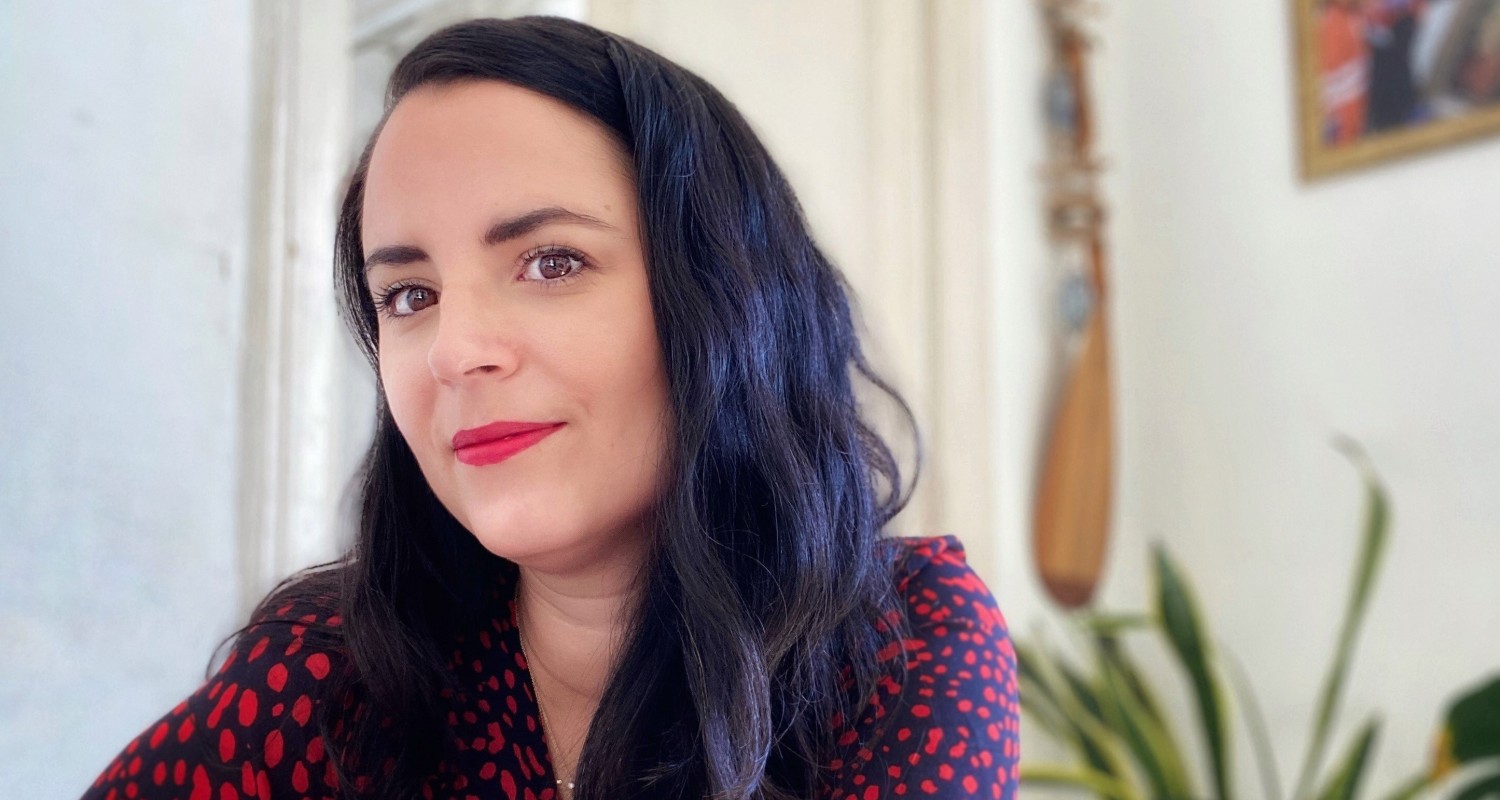"We must leave behind “presenteeism”.
We should have a goal-oriented mindset and therefore we should not notice a big difference on the way we work."
M.S.

Employer branding is becoming even more challenging following Covid-19, making businesses question how to attract top talent and retain employees.
Because of this, Employer Brand jobs are even more essential in the present climate to support organisations in creating the best brand to maintain and improve employee recruitment, engagement and loyalty.
To get an insight into what employer branding roles consist of in the fashion industry today, Marta Sala, a senior HR Manager, has shared with Beyond Talent her experience. Marta explains how she has implemented and directed new strategies to improve talent acquisition and employer branding areas, over the past seven years.
Marta: To be honest I didn’t begin my career thinking I wanted to go into HR. When I studied Psychology, I wanted to specialise in a more clinical role. However, during my degree there was a HR module that I really enjoyed. This led to my first professional work experience being in a HR department where I supported consultants who carried out talent selection processes.
It was during this time that I started to really understand Human Resources and what a career in the profession could offer me.
Marta: Since my first taste of HR, I almost specialised in talent acquisition. My experience at Accenture, which became my “professional school”, allowed me to establish myself professionally in this area. First as a recruiter, then as a manager for the recruitment team in Spain, and then supporting projects to implement the same model that we already had consolidated in Europe in LATAM (middle Americas and Southern Cone).
Getting into an employer brand job role was the result of our own need. We needed to explain who we were as a company (beyond the brand) to attract potential candidates to our available positions.
We were looking for candidates in Europe and the United States and realised everyone had a different understanding of our brand depending on their region. Therefore, it was necessary to proactively begin to explain who we were and what it meant to work in our company.
Marta: The main challenge when we started talking about employer branding was that it was not understood as something strategic or even necessary.
At first, we worked on presenting an analysis of our direct competitors’ actions and how the lack of proactive attraction strategies were affecting our processes in terms of costs, timelines on our recruitment processes, and retention. Fortunately, our HR Director became our first advocate of the strategy, understanding that by working with the employer brand we could also positively impact the commercial brand.
We created a working group that included HR Business Partners, Point of Sale, Head Quarters, Head of Talent and Internal Communications. We all worked on the strategy together. We analysed how we were defined, what made us different, and what determined our employer value proposition. From here we created an action plan to implement an internal and external strategy for employer branding at our company.
One of the key successes of the project was that we were all aligned internally. We also partnered with the Corporate Communication and Marketing departments on implementing the strategy which was extremely effective and valuable.
I really enjoyed the whole process and I learnt a lot. I could not be more grateful for this opportunity in my career. What a journey that we had!
Marta: I am very proud of what we achieved at Desigual. We started from scratch and we managed to engage many employees and make them our main brand ambassadors. People carried out the project as if it was their own. Everything happened in a very natural way.
Marta: There were many actions that gave us results. We tried to work out the journeys of our ideal candidates - from not knowing our brand to incorporating them into the company. We considered the journeys of our existing employees too.
Taking all of this information we made sure we consistently communicated to candidates and employees through social media, job postings, and sharing interview and onboarding experiences. The onboarding stage is a key engagement area for new candidates, however it’s quite often forgotten.
Marta: I would say:
Marta: Very important. Beyond being a communication channel, they are the access to an audience that may not have you on their radar as an employer. It is a way to increase brand awareness, to work your brand for the long term, to show who you are and what it’s like to work in your company.
Marta: Covid-19 has of course affected employer branding. The entire work context has been affected, we have all struggled professionally and personally during this period and we are going to face the consequences of the pandemic for some time.
I believe that more than ever we must be respectful, consistent, and coherent with the reality experienced by each of our employees. Let’s know how they have been coping with all of it. How do they feel? What do they need now?
The focus of employer branding is now more towards internal rather than external engagement, but it depends on the situation of each company.
Marta: It depends on the context of the company, but it will be important to share what the company does to protect employees, while recognising the work of those who have continued working. Both live two different realities with their employer and that must be considered.
Marta: The remote working is here to stay! However, it’s not new, there are many companies that have implemented this way of working on a regular basis for years.
We must leave behind “presenteeism”. We should have a goal-oriented mindset and therefore we should not notice a big difference on the way we work, no matter the physical context.
Successful remote working has been a reality demonstrated during the pandemic lockdown. Of course, working at home during the pandemic has not been a "normal" scenario for all of us since it has not been possible to balance personal and professional life (i.e. parents taking care of kids, other family members, not being able to go outside, etc.). However, I do believe that it is a step forward both for companies and employees.
Now the challenge to be faced is for the whole company to change its mindset and even the leadership style among managers. Focus on supporting employees with tools and ways of working that enable them to do their jobs will become essential.
Working from home brings many positive elements in terms of being able to better reconcile our personal and professional life. The challenge we face in HR is to ensure the new reality is experienced in a positive way and that we take advantage of the opportunities it offers us.
Marta: A good and continuous communication is key. Also, creating new spaces for remote interaction between teams is essential. If a business shows willingness to keep teams engaged remotely, there are many possibilities it can explore to make the future of the company successful.
Marta: During the pandemic I complete a Certificate in Employer Branding Leadership at the Employer Branding College, with Brett Minchington. Brett is one of the world's most published author and educator in employer branding, and the truth is I couldn’t have made a better decision. I have learned a lot.
I have been able to consolidate my learnings from the course and put it into practice in a global context. It’s important that every organisation recognise employer branding as a business function and that we must provide resources to this area to achieve noticeable results.
Marta: Look for what will make you feel fulfilled and happy. Working in HR has its sweet and bitter moments. There’s still a lot of work to be done among HR professionals to strategically position our role in the company, businesses need to start considering us beyond an operational department.
When HR is part of a company's strategy, it really can make a huge difference to a business, its employees and the culture. Therefore, if I had to give advice to someone looking for an employer brand job in HR, it would be to look for companies where our role is perceived in this way. It will make a huge difference to your day-to-day work and the experience you gain.
Are you looking for an Employer Brand job? Let us help you find you a role that goes beyond your expectations.
Get in touch with Beyond Talent: Find your next role today





Beyond Talent
Fashion Recruitment Agency
Specialising in Senior and Executive recruitment for the luxury fashion, lifestyle and beauty industries worldwide.
Head Office Address
20-22 Wenlock Road, London, N1 7GU
Contact Us